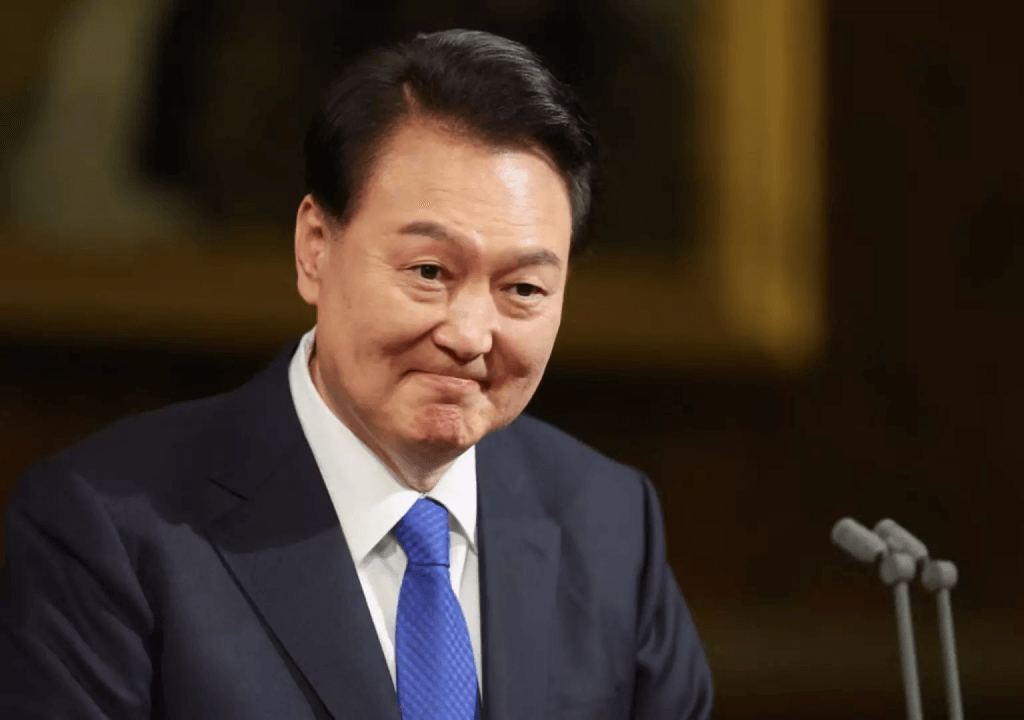Amid South Korea’s frostbitten winter, a political storm grips the nation as President Yoon Suk Yeol fights to retain his hold on power. Wielding every tool at his disposal, Yoon relies heavily on incendiary rhetoric and calculated political maneuvers to discredit his critics. By labeling dissenters as traitorous or anti-national, he doubles down on a strategy rooted in far-right populism. Yoon maintains a defiant stance, resolute in his determination to fight to the end. His supporters argue that removing him would jeopardize the stability of South Korea’s hard-won democratic institutions.
Yet, on icy streets thick with police presence, crowds of citizens defy this narrative, demanding Yoon’s resignation. Their anger has intensified since Yoon’s recent move to consolidate power by undermining parliamentary authority and imposing martial law—a bold and controversial act that eventually led to his impeachment. The day after a failed arrest attempt against Yoon, rival protesters flooded the capital, their voices rising in a bitter standoff over the nation’s democratic future.
Since December 3, the nation has been engulfed in political turmoil, sparked by the declaration of martial law, which triggered a series of dramatic events. These included a failed impeachment attempt against President Yoon, followed by a successful impeachment, the appointment of an acting president, his removal, and a high-stakes yet unsuccessful attempt to arrest Yoon. Holed up in the presidential residence, Yoon is surrounded by hundreds of loyal security officers, successfully fending off prosecutors repeated efforts to detain him. On Saturday, thousands of protesters filled the streets of Seoul, demanding Yoon’s arrest. Members of the Korean Confederation of Trade Unions, the country’s largest labor organization, tried to march on the presidential residence but were met with a strong police blockade.
Yoon faces criminal charges of insurrection, one of the rare offenses exempt from presidential immunity, carrying potential penalties ranging from imprisonment to, in extreme cases, the death penalty. If the arrest warrant is executed, Yoon would become the first sitting South Korean president to be detained. Investigators have urged Finance Minister Choi Sang-mok, who assumed the role of acting president last week, to endorse the warrant by instructing the presidential security service to cooperate. However, the security service reported that two senior officials had declined police requests for questioning, citing the “Grave Responsibilities” of safeguarding Yoon.
On Friday, dramatic scenes unfolded as Yoon’s guards and military personnel blocked investigators, forcing them to abandon the arrest attempt due to safety concerns. The Corruption Investigation Office for High-Ranking Officials (CIO) may attempt to detain him again before the warrant expires, or they could seek a new one. Meanwhile, the constitutional court has scheduled Yoon’s impeachment trial to begin on January 14. The trial will proceed in his absence if he chooses not to attend, following precedent set by former presidents Roh Moo-hyun and Park Geun-hye, who also refrained from appearing during their impeachment proceedings.
All eyes are now on the constitutional court, where a single vote in Yoon’s favor could solidify his mandate to remain in power, while a unanimous ruling against him risks plunging the nation into deeper turmoil. This uncertainty has intensified unease across the political landscape and among the public, who are increasingly alarmed at the prospect of Yoon holding onto power. Calls for his resignation have grown more urgent, with protesters demanding his immediate departure. Many argue that the ongoing crisis has profoundly embarrassed the country on the international stage, jeopardizing South Korea’s growing reputation as a cultural powerhouse.
Despite mounting pressure, Yoon shows little inclination to step down voluntarily. He has intensified far-right rhetoric to rally his base, accusing the opposition of eroding public trust with claims of electoral malpractice in the last parliamentary election. Surprisingly, this strategy has attracted some support, bolstering his defiance. By refusing to resign, Yoon appears intent on casting himself as both a victim and a hero, using this narrative to fortify his image and consolidate his political standing.








